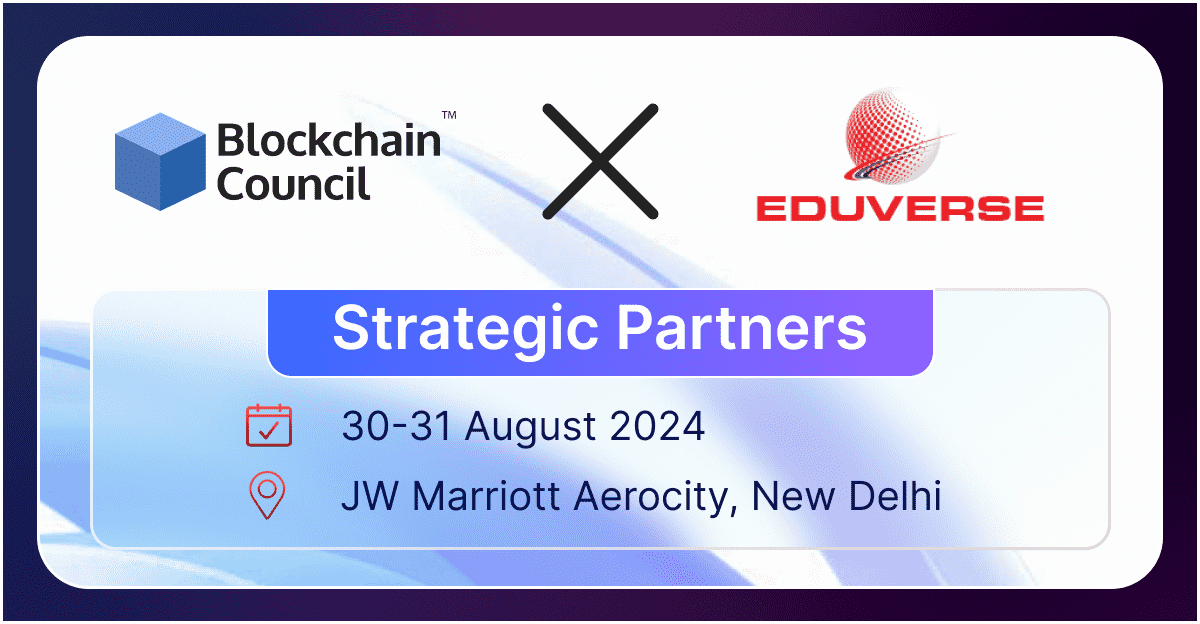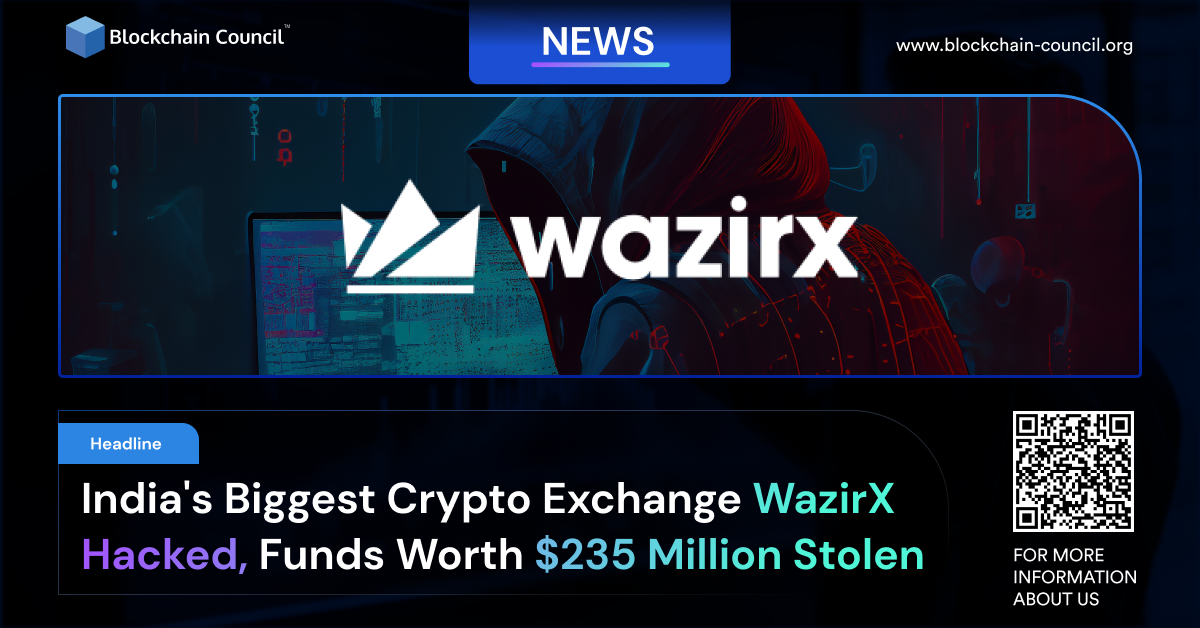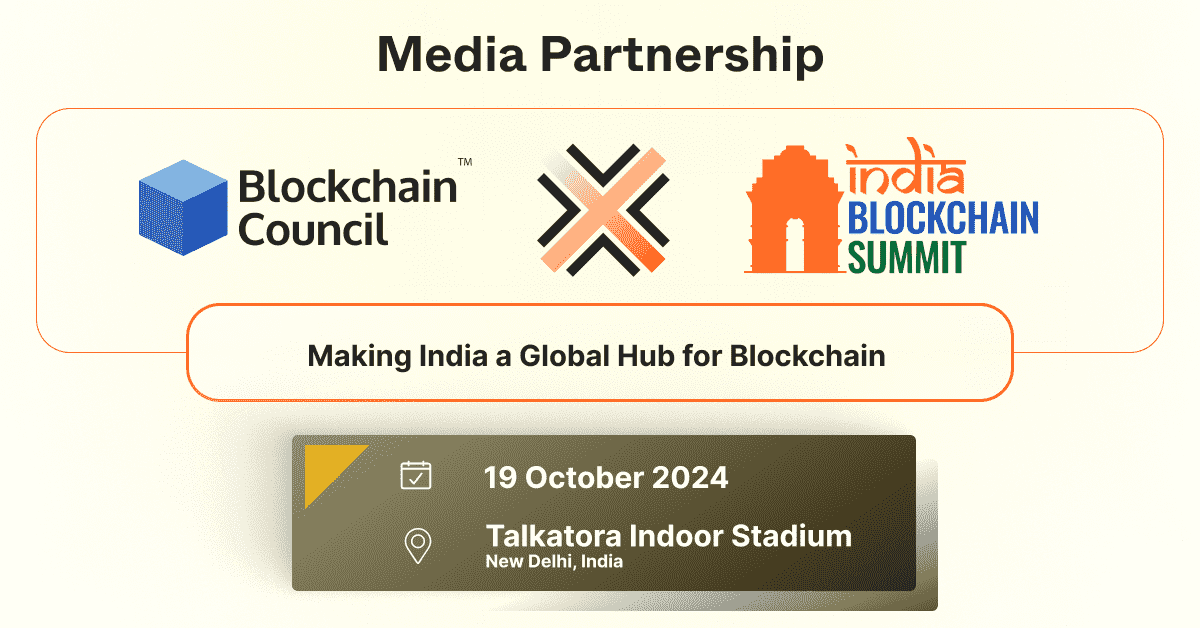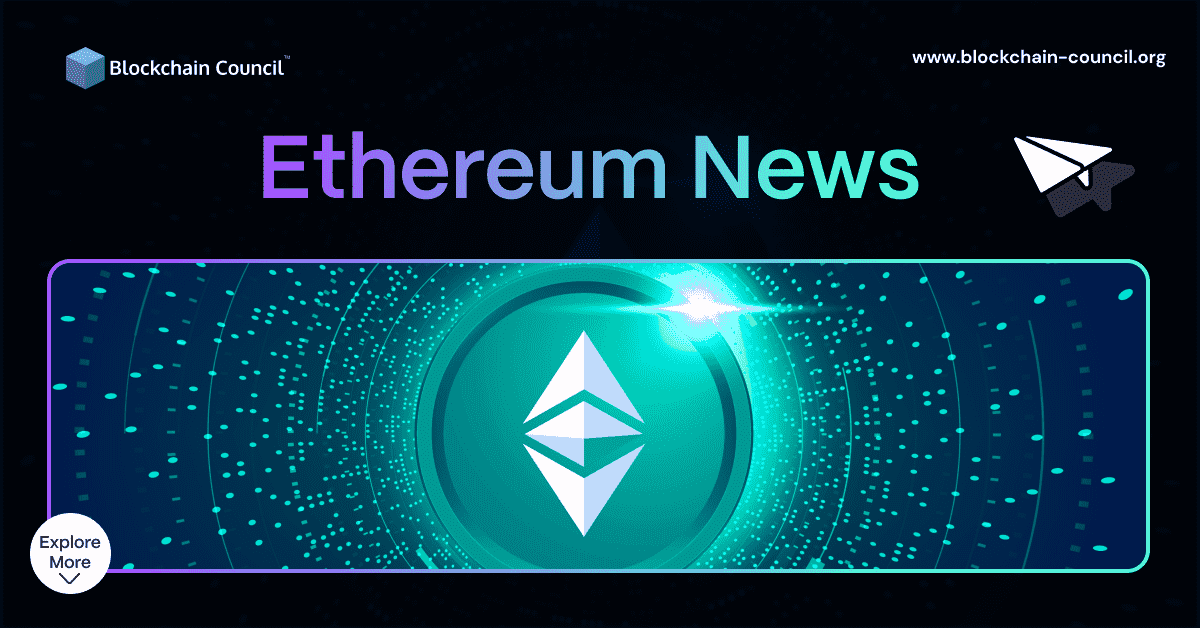
Blockchain Council Announces Strategic Partnership with Eduverse Summit India 2024
Blockchain Council is excited to announce its strategic partnership with the Eduverse Summit India 2024, scheduled to take place on August 30-31, 2024, at the
Home » Understanding Blockchain » What Is An RPC Node – A Comprehensive Guide

An RPC (Remote Procedure Call) Node is software that enables the communication between different crypto applications, regardless of their position. It doesn’t need a server network to perform the operations, making it very useful for dApps communication with the Blockchain.
Major crypto exchanges and dApps are using the RPC node structure to increase their application’s viability and efficiency. Knowing the details about the RPC node structure is necessary to increase the probability of getting more opportunities in the area.
An RPC Node enables applications to make calls to functions or procedures on Blockchain and retrieve information without dealing with the underlying complexities of communication protocols and network topology.
The primary purpose of an RPC Node is to provide a mechanism for communication between different applications, systems, and services. This enables the creation of distributed applications, where the application logic is spread across multiple systems, communicating with each other through the RPC Node.
Businesses and enterprises need help finding skilled candidates in RPC nodes, and getting skilled can help you land an excellent opportunity. RPC Nodes can simplify the process of building and integrating applications, making adding new features and functionalities easier and making it a perfect option for different apps and organizations.
RPCs are a method for dApps to communicate with Blockchain by invoking processes or functions on remote systems. When a client application uses RPC, it sends a request to the Blockchain without revealing the client’s server information, instructing it to perform a specific function or procedure. After that, the server runs the requested function and returns the result to the client dApps.
Read more: A Comprehensive Guide To Building A Metaverse DApp Using Unity
An RPC is based on a client-server structure. It is initiated by a client application, which sends a request to the Blockchain. The request contains the name/information about the function or procedure to be executed and any required parameters. The Blockchain then receives the request and executes the requested function. If the function requires any parameters or additional information about the function, then the Blockchain retrieves these from the client’s request. The Blockchain then returns the result of the function execution to the client dApps.
This is an exceptional niche field requiring professionals skilled in Blockchain development. With different dApps looking to adopt the RPC model, it is essential to upskill yourself with certifications and courses to gain credibility for top global organizations.
Enroll for the Blockchain Developer certification by Blockchain Council and ace your future in the digital world.
Using RPCs provides several benefits, including:
RPCs simplify the building and integrating applications, as it simplifies the underlying complexities of communication protocols and network topology. It makes it easy for dApps to establish a secure protocol to pass information. The simplicity offered by RPC nodes is important for developers who overlook the transmission of information from the dApps to the Blockchain.
RPCs enable communication between applications written in different programming languages and running on different platforms. Some wallets and services interact with multiple chains and services at the same time. Using the RPC nodes, one can perform several functions at the same time over different types of applications rapidly.
RPCs enable large-scale, distributed applications where the application logic can be spread across multiple systems. Multiple RPC nodes can be deployed to ensure that the information is passed over and processed rapidly to make transactions, connect wallets, or look for a particular block hash easier.
Also read: Web3 – Decentralization, Disruption, And Digital Assets
An RPC Node consists of several components, including:
Server
The server component receives requests from client applications and executes the requested functions.
Client
The client component initiates the RPCs and sends requests to the server.
Communication Protocols
The RPC Node uses communication protocols such as TCP/IP to enable communication between the client and server components.
The RPC Node requires a network connection between the client and server components. This can be achieved through various network configurations, including local area networks (LANs), wide area networks (WANs), and the internet.
Security is essential when setting up an RPC Node, as it enables communication between different systems and applications. To ensure the security of the RPC Node, it is recommended to implement measures such as firewalls, secure communication protocols (e.g., SSL/TLS), and access controls.
To ensure the proper functioning of the RPC Node, it is essential to manage and maintain it on an ongoing basis. This includes monitoring the network connection and the server component and ensuring that the required software is up-to-date. It increases the need for skilled engineers with Blockchain technology training who know how the Blockchain and RPC nodes work.
Stay ahead of the curve in the digital domain. Get access to 5 major certifications by Blockchain Council with the Web3 Expert certification bundle. From Metaverse to VR, learn from the experts to upscale your skills and be at the forefront of the digital revolution.
An RPC Node can be used in a variety of different scenarios, including:
RPC Nodes can be used to build microservices-based applications, where each microservice is responsible for a specific aspect of the application logic. This is useful for setting up small applications that perform particular actions like sending crypto coins or exchanging coins over different services.
You can run multiple calls and request to look for information on the Blockchain using the RPC nodes. This can include finding a particular block to encrypt a wallet present on the dApp.
The use of RPC nodes makes it easy for the developers as well as the customers to make and use the dApps. It provides the customer with a standard option to interact with the network server and Blockchain to access the information they need to perform an action or make transactions over different wallets.
For instance, when you connect your crypto wallet with a Blockchain application, the necessary information gets routed to it without revealing any unnecessary detail through the RPC nodes. To curate an RPC node requires skill and patience, and with the increasing interest of businesses and enterprises in crypto, demand for professionals with Web3 training is on the rise.
An RPC Node is a software component that enables communication between applications, systems, and services. It acts as a medium for applications to invoke procedures or functions on remote systems as if they were local.
RPC Nodes can simplify the process of building and integrating applications, making adding new features and functionalities easier. With the advent of dApps, it’s a great chance to use your skills and land a great job. This is because dApps are important to maintain and run RPC nodes regularly to keep up with the increasing user base.
The key to successfully using an RPC Node is understanding its architecture and components and setting it up and using it. Following the steps outlined in this guide, you can set up an RPC Node and use it to build robust and scalable applications.
The increased use of RPC nodes indicates an increased user base for different apps, making it a perfect opportunity to invest your time in learning about it.

Blockchain Council is excited to announce its strategic partnership with the Eduverse Summit India 2024, scheduled to take place on August 30-31, 2024, at the

Indian crypto exchange WazirX confirmed on Thursday that it had faced a significant security breach. The incident resulted in approximately $235 million in assets being

The Blockchain Council is delighted to announce its media partnership with the highly anticipated India Blockchain Summit 2024. This landmark event, scheduled to take place

JPMorgan Mandates AI Training for Every New Employee JPMorgan Chase is making artificial intelligence (AI) training a mandatory part of the onboarding process for all

Ethereum’s Viral Project Algotech Raises $5.1M Algotech, an Ethereum Blockchain-based algorithmic trading platform, has created a buzz in the cryptocurrency market by raising a staggering
Welcome to the Blockchain Council, a collective of forward-thinking Blockchain and Deep Tech enthusiasts dedicated to advancing research, development, and practical applications of Blockchain, AI, and Web3 technologies. Our mission is to foster a collaborative environment where experts from diverse disciplines share their knowledge and promote varied use cases for a technologically advanced world.
Blockchain Council is a private de-facto organization of experts and enthusiasts championing advancements in Blockchain, AI, and Web3 Technologies. To enhance our community’s learning, we conduct frequent webinars, training sessions, seminars, and events and offer certification programs.
To receive Offers & Newsletters
50,000+ Professionals Certified so far by Blockchain Council

Coupon
expires in
Enroll today in any of the popular certifications curated as per the Industry trends.
